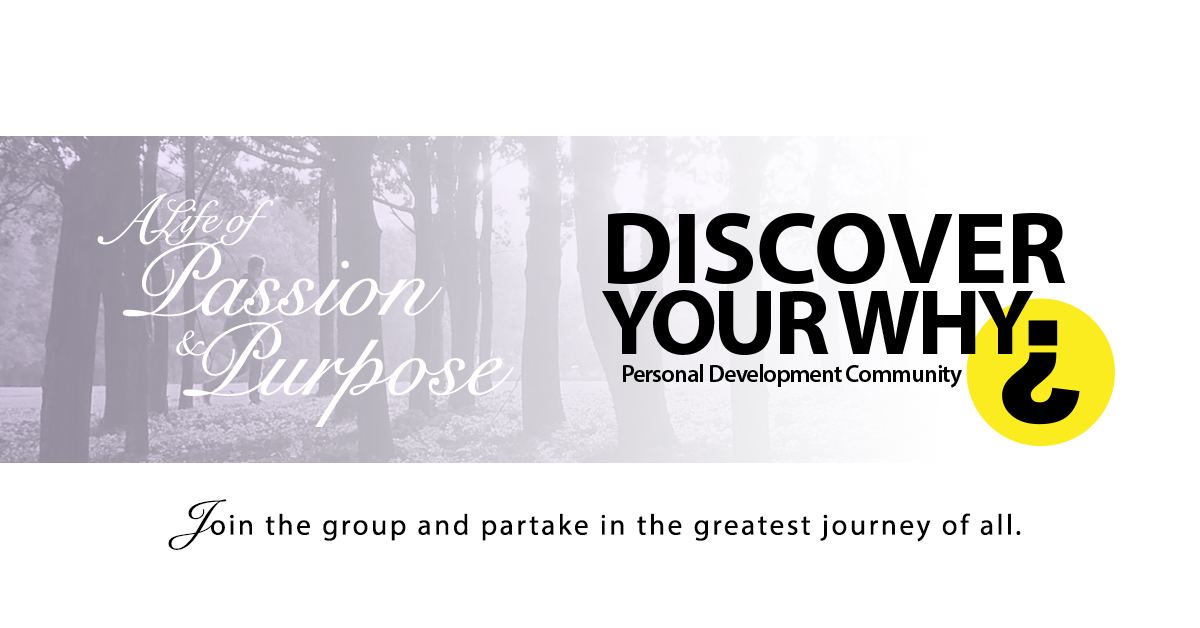
Speaking and Presenting: 6 Thoughts On Improving Your Presentation Skills
If you knew me when I was in school, you would question my credibility to talk on such a topic. The truth is that when I was younger I was a shy kid, unless I knew you well.
When it came to giving presentations at school I would wig out. I would freak out for several weeks prior to the event and then on the stage, I would sweet, turn red, mumble, stutter, slur and shake. I hated public speaking.
Something has changed over the years. I have, through various jobs, been forced to speak in front of people. It hasn’t been an easy transition however I have found some joy in it. I find joy in change. My nerves still exist, at times more than others, and I still become anxious yet not as much as before.
I have thanks to pay to toastmasters, this is truly an amazing club. If you wish to improve your public speaking ability and leadership skills, then this is a safe place to do so. I was fortunate to pick a very busy and supportive club.
I was already engaging myself in pubic some speaking gigs such as being an MC at several of my mate’s weddings but it wasn’t enough. I had a desire to improve my skill and still do. Toastmasters raised my ability to deliver speeches to another level. Thanks toastmasters.
Public speaking is one of the top fears next to falling or heights, spiders, snakes, insects and drowning. Now I am speaking for myself, I really have no idea but know it is one of the top fears.
By joining a club like toastmasters, you can help overcome your fear of speaking. At the same time, you can also listen to and learn a great deal from everyone else in the club. People share stories, people are inspiring, and everyone truly shares some greatness. You can also hone your leadership skills.
If you want to overcome your fear of speaking, then join toastmasters. If you just want to improve your skills, then join toastmasters. If you want to be inspired, then join toastmasters. If you want to be a better leader, then join toastmasters. If you want to have a bit of fun, then join toastmasters. Enough said!
I am by far no expert however I feel I have some knowledge to share. I plan to continue improving my skills also. These are practices and ideas that help me and is the reason I wish to share- hoping they will assist you. They may not.
#1 Speak aligned with your passions.
We all have a passion for something. I have many passions. I love reading and listening to podcasts. I love learning from others. My curious nature allows me to explore some topics further and others are best left to someone else. I have given speeches on a variety of subjects yet the ones that I master are ones that resinate truly with my inner self.
You have passions so choose the one that you could talk for hours about with your friends. That is the topic you can present on. While I like health I am by far the ideal candidate for what perfect health is, nor am I an expert. I have talked about the damaging effects due to meat consumption before but the presentation wasn’t great. It was OK but not great. I like this topic but because it doesn’t consume me, it shouldn’t be my first speaking gig.
It’s ok to test yourself and try different speeches but when you’re starting out it’s not the best idea. When mastering any skill, you want to make it as simple as possible. Choosing a topic that your passionate about will be much easier than a topic that you just like or are interested in. Go with that.
If you think you have no passion, that’s a load of crap. We all like something more immensely than others. It might be fishing, The Walking Dead, raising chickens, personal growth or cleaning toilets. If you think others wouldn’t be interested than think again. I recently watched someone talk on roman architecture, it was fascinating.
When anyone speaks with passion- people will listen. When anyone speaks with passion and from the heart- people will learn more. When anyone speaks with passion, speaking becomes easier.
If you still think you don’t have passion than perhaps public speaking is not where you should be starting. You are better off focusing on finding passion in life, in what you do, first.
#2 Think before you write.
Before I write anything, blogs, books, speeches I have already thought about the topic. I become inspired by something and then a story starts forming in my head. I don’t reveal the entire script in my head, just the general purpose and maybe an intro.
The more I think about it the better it can become but there mustn’t be a gap between thought and pen otherwise you will forget critical parts. I have done this too many times and still the lesson hasn’t been learnt. Think first.
Your thoughts will be generated from your daily consumption of content. What content? This will vary depending on where you spend your time. If you watch a lot of TV that will be your inspiration. If you work a lot, you may be inspired by your colleagues. If you read a lot, you will have a lot to share from books.
If you find it hard to find inspiration, then dive deeper into area that you a curious. Your passion is a good indication of the direction you should take. If you like collecting coins than read blogs, books, attend seminars and listen to podcasts on coin collecting to find more thought provoking content. This will help.
When you find that thing that sparks your interest, understand why. What is it that resinates with you? From there you can direct your purpose. Is it to teach, inspire, inform, entertain or persuade. What advantages can the audience have by listening to your knowledge on such a topic.
Be mindful not to over think it. Over thinking is often a reason to procrastinate. Over thinking can elude and trick you into believing that perhaps its not worth sharing. Think quick, find purpose, brainstorm a rough intro and get writing.
If you still think people wont be interested than simply write about that. Do a speech on why people wont benefit from you talking about growing spinach, it just may turn into a humorous talk. Just go for it, people find people interesting. Those that attend Toast Masters do, otherwise they would not attend.
#3 Write your speech.
When you love writing and do it everyday it becomes easy. Am I a great writer? Can I write, yes! What I really like to focus on is an intro to encourage engagement and than an outro to summarise and most importantly to be remembered.
When you start out you want to grab people’s attention, you want to create intrigue. If you loose them at the start you will struggle to get them back. I thought I was the only one that has a limited attention span but have discovered most people do. And then there are always going to be people that just don’t listen.
Depending on your passion and style will depend on the attention grabbing technique you wish to use. People like to connect with the subject but must be invited first. Here are a few techniques: questions, humour, shock, noise, silence, action, emotion and oddity.
The interest you capture by your audience will highly depend on their awareness and commonality of your topic. The more unfamiliar your subject the more critical it is to use the above techniques. I have seen all the above been used and they in most held my attention. Do what come natural to you.
When you use these techniques you will gauge the audience’s level of attention. You may wish to encourage a higher level of response. You can use these techniques again at any point in your speech. Asking questions that require some response can be encouraged by you raising your hands or saying ‘yes’ while nodding, if your audience follows you- you have their attention.
These techniques should be used throughout your speech. You can loose people in the body. If you are speaking passionately this wont happen but if you feel the audience going cold then its time to raise your voice, jump around, ask a questions or light a fire-cracker. It is up to you to keep them involved.
#4 Practice your speech.
How do you practice a speech and what if the speech is long, what to do then? It’s relatively easy to remember a 2-minute talk, word by word. As it gets longer it becomes more difficult. This is when sometimes we can run into some problems.
My thoughts are that when you try remember a speech word by word that it can become a bit nerve-racking, you may be anxious that your going to screw it up, forget a word or sentence. The second thing I find is that when attempting to give the speech word by word you are likely to screw up even if you get forget just one word or put a word out of place or get it wrong.
This is the moment you go blank and the crowd’s facial expressions, eagerly waiting for the next word, start putting pressure on you to speak. The silence is deathly. This can make or break your presentation. There are ways to manage this but if you are not equipped correctly it could be hard to get back into flow.
This is why I try not to practice my speeches by reading word for word off my script. What I like to do is read my script and then try talk on each section as naturally as I can while also trying to remain on purpose with similar intent to what I wrote.
I also break my speech up into logical sections. This may include the intro, the body- broken into 3 pieces, and then finally the conclusion. We learnt this in school but we didn’t learn how to memorise it.
Try now breaking your script into logical sections. Its up to you how many sections this equates to. It could mean 3, 5, 10 or even 20- what ever it takes. The longer the speech the more sections you may wish to include. Now just try reading one section and then without referring to your notes, practice.
As you start the practice you may find yourself really struggling to remember what was included in that section. This being the case you need to refer back to your notes. If it’s a topic you are passionate about my feeling is you should be able to talk naturally on each section without notes at all.
Checking your notes each time you practice a section to ensure you did mention the critical information you wish to.
Writing a speech is for me is to create structure around your talk and to ensure you include the relevant content essential to effectively communicating your message. This said, I believe then in practice it is essential you get the structure and content correct.
The specific words you write you will most likely use in your natural speech anyway so remember them perfectly is not necessary. If you require technical jargon or complex speech that you would not often use in day-to-day communication you may wish to pay closer attention to them.
When writing a speech, I suggest you write as if you where talking. This will help you communicate your message more naturally- making you more comfortable. It will allow your audience to receive the message with greater ease- complex language is harder to interpret and digest, and of course you will be able to memorise your speech with greater ease.
After you practice each section and feel comfortable without notes move to the next sections. I start by trying to rehearse the entire speech memorising one section at a time. Once I master one section I move to the next section in order. Always starting from the start until all sections are memorised and I can comfortably and confidently speak without notes.
It is with this practice I have never relied on notes during my speeches. There have been moments, and one recently that I remember, where I forget a part or my speech, not a single word but the next sentence. I managed through it with some deep breathing. I have also become use to being comfortable with silence until I remember my way.
You can actually use such pauses to raise suspense, emphasise a point, or allow time for your audience to digest what has been said so far. With improved technique, your audience will not see a pause as that you have forgotten your speech but more so deliberately placed.
#5 Controlling your anxiety and nerves.
I still get nervous before my I speak. Sometimes I am sitting, waiting my turn and I have a thought as to how I may escape this madness. What could I do to get myself out of throwing myself into this death ring.
When you really want to improve in any area of life and are committed its hard to pull out. Its even harder when you have come so far. Sitting there while your evaluator introduces you, it would be more embarrassing to suddenly exit the room than to go through with your commitment.
Here are ten reasons why you may feel nervous that I have borrowed from another blog I read. They include: self-consciousness in front of large groups; fear of appearing nervous; concern that you are being judged; past failures; poor preparation; narcissism; dissatisfaction with one’s abilities; discomfort with your body or appearance; poor breathing habits; and comparing ourselves to others. You can read this blog here.
For me nervousness can be caused by one of these things or a combination. The fear is actually raised based on the pain that may be caused. One thing that I have come to learn in life is that pain is not permanent. “This to shall pass.” I always like to remember this adage as it relates to speaking and to life in total.
Nerves will exist and nerves will pass. The pain that you may experience will also pass. Once you deliver your first speech you will notice the pain will lessen, even if only slightly. Even if you think you screwed up, I believe that every time you reattempt something the pain you associate with it will be reduced. This is why consistent practice makes perfect, as each time you get that little be better.
Nevers for me have lessened but still exist. I have spoken to many great speakers and they have all told me that they still get nervous before a speaking engagement. I have often wondered with this but if you watch experienced speakers before they step on stage you will spot signs of nerves. Tony Robbins who speaks all the time in front of very large crowds spends at least 10 minutes preparing directly prior to speaking. You can learn a heck of a lot from confident speakers and their habits to control nerves.
I was once told nerves mean that you care what you are talking about. I tend to agree. I think if you had no nerves it likely means you are less interested in what you will talk about. If this is the case the audience will lack interest also. Nerves are there to be listened to. If you are nervous due to any of the above 10 reasons you need to find ways to control and better direct those nerves.
Nerves are essentially fibres in the body that transmit impulses to the brain, spinal cord, muscles and organs. If you can harness these impulses, you will become more vibrant and controlled on stage.
Here are things that I have learnt. Firstly, preparation is key. By following the process, as above, I am more confident that I will be able to communicate my message both passionately and purposefully. Failing to prepare is like preparing to fail.
Secondly, on the day I become aware and present with my self-talk. These are those voices that tell you what you can or cannot do. Self-talk can be negative or positive. It takes practice in becoming aware of your self-talk as it does in controlling it.
I have caught myself out while driving to give a speech with talk that is negative and non-supportive to giving an effective speech. Talk like, “You can’t do this”, “How are you going to pull this off”, or “You haven’t practiced enough- turn home now.” Negative self talk is easily noticed by negative language, can’t, haven’t, don’t, wont, am not.
When you pick up on this you must with all strength fight it. These are nerves and your conscious mind only trying to protect you from experiencing any level of pain. You must change the language you use by changing your self-talk.
When I had these thoughts recently I consciously changed my self-talk. “I am going to nail this.” “I am going to have people standing and applauding me.” “This is going to be my best speech ever.” And “I am a great speaker.”
This kind of talk will put you in the right mindset and assist you to harnessing your nerves to be used for good not evil. Essentially you are tricking your mind. It also helps raise the vision of the outcome you desire. If you imagine yourself forgetting your words or looking nervous on stage you will likely do so. If you imagine yourself killing it with confidence and poise you likely will.
When you enter a room its good also to assess your audience. How you do this will depend on the size of the audience. In Toast Masters for example I like to stand up the front before its starts and then walk around the tables saying hello to everyone, it makes me more comfortable with who I will be speaking with. In a larger audience you may wish to stand back behind the scenes scanning the crowd for a few mintues.
Breathing is a technique that helps control your nerves. When you are nervous your breath becomes more rapid and you almost forget to exhale. This places additional stress on your body and is not conducive to giving a good speech.
Deep breathing prior to a speech give your body the oxygen it needs to relax. Actually if you are stressed in life then deep breathing exercises will help you relax. I practice deep breathing before I step up to speak and it helps. I also, in front of the audience, pause and talk a deep breath before I deliver. This technique also helps me to get comfortable with my audience and gather my thoughts rather than rushing in.
Once you start talking your nerves start working to help you and not stop you if they are controlled. I believe that your nerves when controlled will help you better remember your speech and better deliver your speech. Again your nerves only exist to protect you from any undesirable pain. When controlled they are a blessing.
Other than that, I really fell that it is through practice and pushing those boundaries of your comfort zone you will find it increasingly easier to commit to speaking engagements, easier to arrive at speaking engagements, easier to step up on stage, and easier to finish your speech with greater oomph and clarity.
#6 Have fun and grow.
If you are speaking you are most likely doing it because you enjoy it and that you wish to grow. For this reason, you should aim to just enjoy the process. Embrace the nerves and the challenges that you will face as they will pass. Like a child that grows old too quick soon you will forget the joy in these challenges you face.
Self growth and continually improvement are fundamental human needs and therefore needs to be encouraged. If you can learn to enjoy the process, you will continue to undertake the process. Like anything we approach, if we approach it with joy and passion we will savour more of these important moments in life.
Like the need to eat you do not starve yourself out of fear you will be poisoned. Instead seek to be knowledgeable about what you consume and prepare it correctly. This same process should be applied to our human need of growth.
They are practices, thoughts and tools that I have used to help me. I hope they help you and wish you all the success. If you would like to share your thoughts, you can send me an email using the link below. Until next time, peace, passion, purpose and happy speaking.
FIND YOUR HIDDEN WHY with THE HIDDEN WHY (THW)
BUILD YOUR LIFE AROUND YOUR PASSION AND LIVE WITH PURPOSE
Sign up for free below and receive cool stuff from me each week + Plus a free copy of “The Four Pillars of Success”
In my weekly emails you will receive ideas, thoughts, learning’s and inspiration on:
- How to design a life that you want and live by your terms
- How to live a life with passion & purpose
- Methods, strategies, & techniques on life hacks
- Messages on how to better live your life
- We will also keep you up to date with fantastic interviews from THW podcast













Leave a Reply